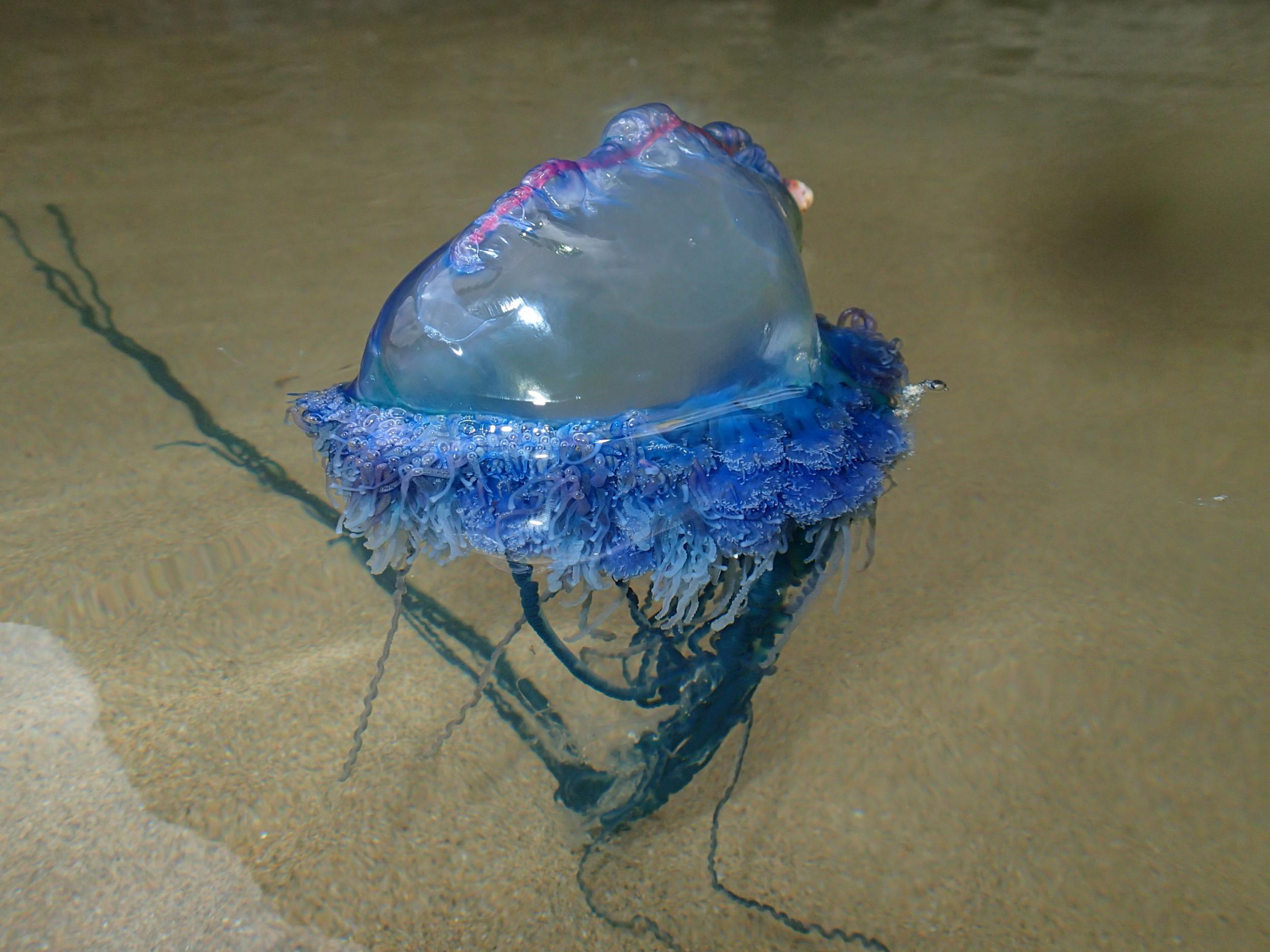Thousands of Portuguese Man O'War are washing up on UK beaches
'They are not supposed to be here'

British beaches are being invaded by swarms of potentially deadly Portuguese Man O'War.
Thousands of the species have washed up on shores on the south coast as a result of extreme weather and a series of hurricanes in the Atlantic, according to The Marine Conservation Society (MCS) which said the infestation was the biggest since 2003.
While their stings are not usually deadly, they can prove fatal in some circumstances.
Swimmers have been told to wear full body suits and parents are being advised to exercise “extreme caution” with children playing on beaches.
The creatures are usually found in warmer waters and in the open ocean but have reached the UK in greater numbers than usual this year. In an average year, 1000 to 1500 sightings of Portuguese man-of-war jellyfish are reported on British shores but more than 2000 have been spotted in the UK already this year. There were also above-average numbers of sightings in 2009 and 2012.
Despite its appearance the Portuguese Man O’War is not a jellyfish but a marine animal known as a siphonophores. The venom in its tentacles is used to paralyse small fish and can deliver a severely painful stings for humans and can even cause death to small children and from allergy-like symptoms in adults.
Dr Peter Richardson from the MSC told The Telegraph: "The last really big sighting was in 2012. They spread further in 2012 but we have greater numbers this time. It will be down to a combination of factors [including] the extreme weather we've had with the hurricanes. They are not supposed to be here."
The creatures have been spotted on beaches in Hampshire, Dorset, Devon, Cornwall and Pembrokeshire, Wales.
Their venomous tentacles can grow to up to 50 metres in length and contain a sting that leaves red welts on the skin for two or three days. In some circumstances the sting has proved fatal.
The NHS says anyone stung by a Portuguese Man O'War should remove any tentacles from the skin and rinse the affected area with sea water and then hot water.
If symptoms persist or the sting is on a sensitive area of the body, medical advice should be sought immediately. Covering the sting in vinegar has also been found to be particularly effective.
Join our commenting forum
Join thought-provoking conversations, follow other Independent readers and see their replies
Comments
Bookmark popover
Removed from bookmarks